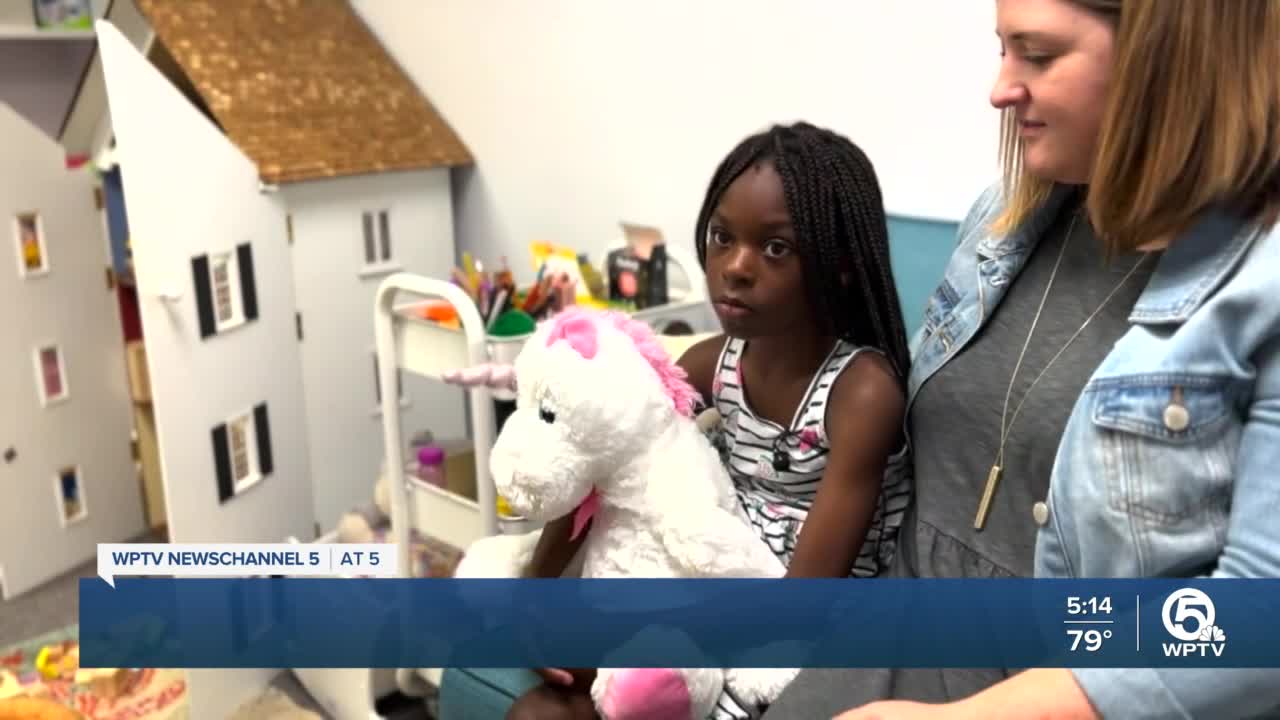PALM BEACH GARDENS, Fla. — With the state of the world today, many children have fears or worries. They may feel sad and hopeless from time to time. The burden has intensified during the pandemic. Now, a national panel of medical experts are recommending younger children should be screened for anxiety.
Asia is 7 years old and likes to play games. Today, she is in a session with a therapist playing house.
A couple of years ago, Asia was diagnosed with anxiety. This is a child-centered play therapy.
It allows the child to express thoughts and feelings they may be having to navigate their anxiety.
“I’ve learned some things that will help me calm down,” she said.
“Build their capacity and also the caregivers’ capacity to cope with things like that,” said therapist Darla Mullenix.
Asia was adopted by Bailey Hughes and her husband a few years ago. She says there were some obvious behavioral changes Asia had that they knew they needed to seek more help.
“How we could get her through the moments, where she maybe had an extreme response of anxiety of certain things. A lot of her trauma triggers would create a sense of anxiety,” said Hughes. “So, we knew we needed extra tools in place, to help her get through those difficult moments.”
But anxiety in kids isn't always easy to spot. That is part of the reason United States Preventive Services Task Force now recommends screening for anxiety among children starting at the age of 8.
According to the latest data from the Centers for Disease Control and Prevention, more than 7% of children, ages 3 to 17, across the country have been diagnosed with anxiety.
“The earlier you can begin with intervention, the better the outcomes for the child,” said Renée Layman.
Layman, who is president of the Center for Child Counseling, says stressors that trigger anxiety among kids have been exacerbated by the pandemic.
“A lot is going on when you look at the life of a 5-year-old or 7-year-old,” she said. “All of these losses and changes in a child’s life really create anxiety."
Hughes says it has been helpful as a parent to be in these therapy sessions and add another tool in their toolbox.
“Learn the technique, so when you’re not in a session and you're at home and experiencing behavior, you can respond appropriately to help them through that,” she said.



